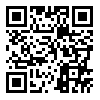مجله رویش روانشناسی از دادن گواهیهای کاغذی معذور است. لطفا تقاضا نکنید. همه گواهی ها در صفحه شخصی کاربران موجود است.
year 12, Issue 4 (Summer 2023 2023)
Rooyesh 2023, 12(4): 33-44 |
Back to browse issues page
Download citation:
BibTeX | RIS | EndNote | Medlars | ProCite | Reference Manager | RefWorks
Send citation to:



BibTeX | RIS | EndNote | Medlars | ProCite | Reference Manager | RefWorks
Send citation to:
Senobar A, Ghadampour E, Abbasi M. The Relationship between Computer Anxiety and Computer Self-Efficacy with Students' Virtual Learning Acceptance: A Mediating Role of Perceived Ease. Rooyesh 2023; 12 (4) :33-44
URL: http://frooyesh.ir/article-1-3970-en.html
URL: http://frooyesh.ir/article-1-3970-en.html
1- PhD student, Lorestan University, Khorramabad, Iran.
2- Professor, Lorestan University, Khorramabad, Iran. , Ghadampour.e@lu.ac.ir
3- Assistant Professor, Lorestan University, Khorramabad, Iran.
2- Professor, Lorestan University, Khorramabad, Iran. , Ghadampour.e@lu.ac.ir
3- Assistant Professor, Lorestan University, Khorramabad, Iran.
Abstract: (501 Views)
The aim of this study was to investigate the relationship between computer anxiety and computer self-efficacy with the rate of virtual learning acceptance by considering the mediating role of students' perceived ease. The design of this study was descriptive and of typ correlational. The statistical population of the study consisted of all incoming 2019 student-teachers in the academic year 2020-2021 in Khuzestan province, from which 220 people were selected by cluster sampling. Data were collected by Computer Anxiety Inventory (CAS; Bandalusso & Benson, 1990), Computer Self-Efficacy (CSM; Howard, 2014), Perceived Ease (PEUS; Davis, 1989), and Virtual Learning Acceptance (ElAM; Theo, 2010) and was analyzed by path analysis with SPSS and AMOS software. The results of structural equation modeling showed that computer anxiety has a direct and negative effect on students' virtual learning acceptance(P<0.05). Also, computer anxiety has an indirect negative effect on virtual learning acceptance through perceived ease(P<0.05). The results also showed that computer self-efficacy has a significant positive effect on virtual learning acceptance(P<0.05). The results showed that computer self-efficacy has a positive effect on the acceptance of virtual learning directly and also through perceived ease(P<0.05). Finally, the results showed that perceived ease also has a direct positive effect on virtual learning acceptance (P<0.05). The fit index also showed that the default model has a good fit. Therefore, it can be concluded that perceived ease plays a mediating role in the relationship between computer anxiety and computer self-efficacy with virtual learning acceptance.
Type of Article: Research |
Subject:
Educational Psychology
Received: 2022/06/22 | Revised: 2023/08/14 | Accepted: 2022/06/29 | ePublished: 2023/08/14
Received: 2022/06/22 | Revised: 2023/08/14 | Accepted: 2022/06/29 | ePublished: 2023/08/14
Send email to the article author
| Rights and permissions | |
 |
This work is licensed under a Creative Commons Attribution-NonCommercial 4.0 International License. |






